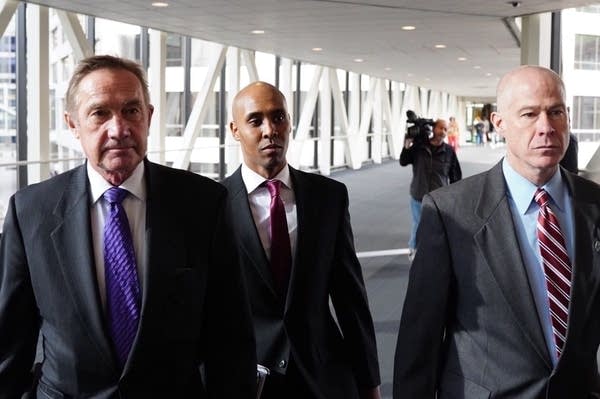Ruszczyk shooting led to scrutiny and shakeup in Minneapolis

Former Minneapolis police officer Mohamed Noor, center, enters the Hennepin County Government Center with his attorneys Peter Wold, left, and Thomas Plunkett on Monday.
Evan Frost | MPR News
Go Deeper.
Create an account or log in to save stories.
Like this?
Thanks for liking this story! We have added it to a list of your favorite stories.


